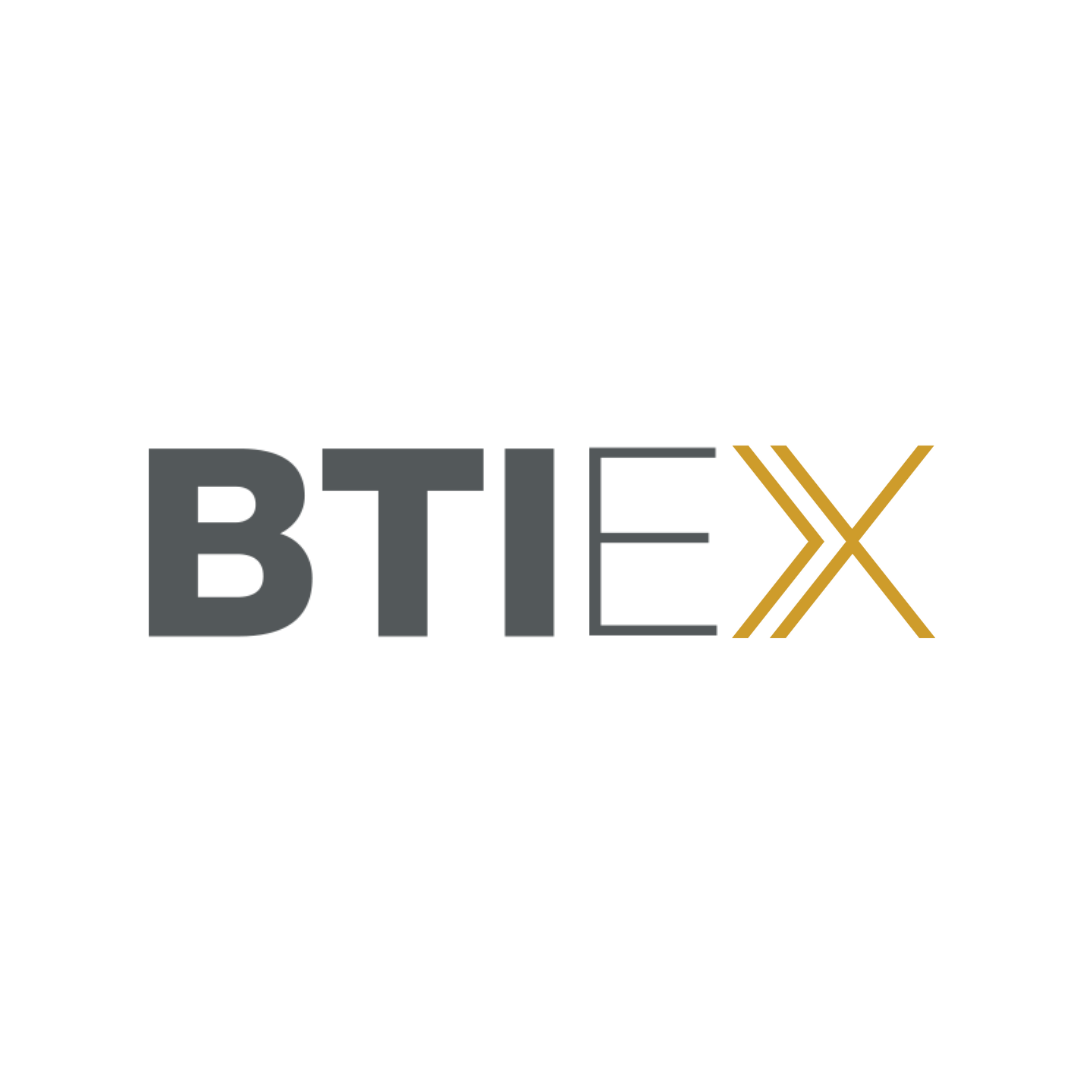Blockchain technology has evolved into a wide range of applications, rapidly transforming how the world works, lives, and interacts today. There has been a movement from a centralized world and way of doing business (considered Web2) towards a decentralized, open-sourced, and distributed model, increasingly referred to as Web3.
For fast-moving and innovative organizations, this presents an incredible opportunity. The first companies to adopt, embrace and scale their blockchain capabilities will be the first to capitalize on soaring demand for a technology that delivers transparency, privacy, decentralization, automation, lower costs, and much more.
But blockchain also presents multiple challenges. The new technology, and companies that operate in this space, are navigating an uncertain and rapidly evolving regulatory landscape. At the same time, a growing number of companies across many different industries and sectors are chasing and competing for a small pool of talent with blockchain technology and cryptocurrency knowledge and experience.
There’s a third challenge as well. The crypto and blockchain industry’s culture, work style, and arrangements are often as unique as the technology itself. Companies must understand what they do and, just as importantly, what they want to attract and retain these workers.
In this primer on the sector, we look at the rise of blockchain and how companies across Asia are hiring skilled talent who are making it all happen.
The Birth of Bitcoin, Blockchain Technology, and the Rise of the Industry
The idea of blockchain emerged back in the 1980s. Yet, the technology’s big splash occurred when an unidentified individual or group called Satoshi Nakamoto came up with Bitcoin, a digital form of money created by computers competing to solve cryptographic puzzles.
It is perhaps unsurprising that the creation of Bitcoin, and the growth of the cryptocurrency and blockchain space since then, coincided with the Financial Crisis. After all, this was when people lost trust in the traditional world and the historical way of doing things. We have seen a tremendous amount of enthusiasm, and investment into, a more decentralized model known as DeFi in the finance world, but with a scope, reach, and potential far exceeding the financial services industry. Blockchain technology has rapidly spread beyond finance to all corners of the economy, from healthcare and supply chains to digital art and the Metaverse.
This expansion has triggered an arms race for talent. For example, job postings for blockchain workers in the US jumped almost 400% last year, well ahead of the 98% increase in the tech industry overall.
- It’s a similar story in Southeast Asia, where the rise of blockchain is beginning to resemble another dynamic industry: eCommerce.
- Southeast Asia is becoming ground zero for eCommerce, boasting the fastest growth in the world and spawning multinational giants like Shopee.
- A recent LinkedIn search for ‘eCommerce’ jobs in Singapore showed 4,400 openings, while an identical search for ‘blockchain’ comes up with 1,900.
Not bad for a technology few people had heard of just a few years ago.
Crypto and Blockchain Talent Landscape in Singapore
Singapore is an economic dynamo at the forefront of new finance technology. It’s no different with cryptocurrency. Last year, the city-state led Southeast Asia in funding for crypto startups, while local crypto pioneer DBS Bank said trading is soaring on its digital assets desk.
The success of Singapore’s startups and mainstream institutions like DBS is fuelling the demand for skilled blockchain employees. Let’s take a look at some examples.
Data Analysts help with settlements, loan tracking, account opening, and position management. A recent opening for a blockchain data analyst in Singapore offered a monthly salary of S$20,000 for a person with just two years of experience and a strong familiarity with crypto wallets, blockchain, smart contracts, and stablecoins.
Singapore also has a reputation for being one of the world’s most efficiently regulated economies. This factor has triggered demand for people who can navigate companies across an unfamiliar regulatory landscape.
Elliptic, a global leader in crypto asset risk management, recently hired a former senior executive at the Monetary Authority of Singapore. The crypto trader AlphaLab Capital Group recently sought a Lead Regulatory Counsel to advise laws and taxes governing digital assets.
Crypto and Blockchain Talent Landscape in Hong Kong
Hong Kong has long been Singapore’s main rival as a financial hub in the region. While there have been some mixed signals involving regulation and with some firms growing concerned about the stance of Mainland China towards the industry, Hong Kong nevertheless has a flourishing crypto scene.
The local digital asset start-up Amber Group was recently valued at US$3 billion after an investment round led by Temasek, while more traditional institutions like HSBC are also entering the fray – partnering with a local blockchain gaming company to gain a foothold in the Metaverse.
As the regional head office for some of the world’s leading financial services organizations and multinational companies, it’s perhaps no surprise that companies like Goldman Sachs seek Digital Asset Analysts for their expanding crypto business. But there’s so much more in the local blockchain scene, with growing demand for professionals with experience in smart contracts, compliance, finance, risk management, and cybersecurity professionals.
Recent openings at Crypto.com, for example, featured a Smart Contract Auditor with a background in finance and compliance and Security Engineers and Security Cryptographers to bolster the company’s protocols against cyberattacks.
Crypto and Blockchain Talent Landscape in Indonesia
While Singapore led Southeast Asia in funding for crypto startups last year, Indonesia came in second. This sprawling archipelago of 270 million people ranks seventh in the world for the number of crypto holders. While the government is showing signs of tightening regulations, local crypto exchanges like Tokocrypto continue building up the country’s blockchain infrastructure. These efforts are fuelling a scramble for the engineers who can make it happen.
A blockchain Engineer could be expected to perform several functions, from creating APIs to debugging browsers. Desired skills may include knowledge of Go programming language, proficiency in JavaScript, an understanding of React, and experience with GraphQL development and authentication protocols/methods such as JWT and OAuth2.
It’s a similar story across the rest of Asia as different countries take different approaches to crypto and light a fire under the demand for the talent that can make blockchain technology a reality.
In Thailand, for example, where the value of crypto trading spiked 164% to US$6.6 billion last year, there is a growing need for people who can act as intermediaries between the finance and tech teams, on the one hand, clients and prospective investors on the other.
This is just a snapshot of some of the types of jobs now appearing throughout the blockchain industry. But what are the best practices when looking to attract talent, the unique challenges, and
How Can You Overcome Recruitment Challenges in Crypto and Blockchain?
Recruitment Challenges
Crypto is an exciting sector flush with opportunities. But some challenges go beyond tricky regulations and other birthing pains of a new industry. The biggest challenge is the thin talent market with specific knowledge and experience in blockchain technology and the cryptocurrency industry. Not too dissimilar to the early days of the internet, there will be serious competition from other companies aiming to hire the same individuals and challenges in terms of counteroffers and retention.
Salary increments to attract talent would generally be around 15-20%, but salary uplifts between 35-45% are not unusual in this industry. We have witnessed candidates with highly desirable skill sets being offered more than double their current salaries!
Another challenge is the nuanced culture and working habits of many crypto professionals. They often prefer decentralized cooperation to rigid corporate hierarchies. Many demand remote working, the ability to manage their schedules, work location, and contractual arrangements.
They also like to be paid in cryptocurrency. The number of remote contract workers drawing salaries in crypto jumped 190% in Malaysia last year. Globally, the number of remote workers asking to be paid with crypto has risen 10% a month since November 2020.
In addition, candidates will expect to be offered either an equity scheme or a profit-sharing arrangement, especially for smaller start-up firms.
Best Practices and Winning the War for Talent
Attracting and retaining a crypto workforce poses a unique challenge to companies and HR departments that have developed smoothly efficient yet rigid processes for hiring.
While we appreciate the value of internal recruitment and talent acquisition teams, it is ironic that you have extreme centralization of recruitment processes in a decentralized industry. This often leads to longer and slower recruitment processes, the inability to pipeline talent properly, and limits on what offers companies can give candidates.
We have found that arguably the most critical factor in winning the war for talent is the speed at which interview processes can take place and the ability to give candidates timely offers. This may require some decisions to be made earlier and quicker than usual. Those who are agile and quick will win the war; those that are not will lose.
Particularly at the senior level, candidates have structured and complex packages with a mix of salary, short-term and long-term incentives, and tailored benefits. Therefore, it is crucial to understand the entirety of a candidate’s current package and to be able to offer competitive and enticing packages to attract top-tier and senior talent.
Understanding a candidate’s true motivations and the push and pull factors involved will be crucial throughout the recruitment process. Given the post-Covid world, you will need to provide a blend of financial and non-financial factors, which you may have to tailor on a case-by-case basis.
Most candidates will have multiple interview processes on the go, interest from competing firms, and they will most likely receive a counteroffer upon resignation, which you need to manage appropriately. Working with an external recruitment company can help with this. They have networks and relationships, often built over many years, within their areas of specialization and the time and care to manage candidates properly, align expectations, and manage offers, resignations, and counteroffers. Onsite recruitment teams are effective, but they cannot provide this level of service when they are looking to recruit multiple roles simultaneously and often rely on more active job seekers either applying to job advertisements or replying to messages on LinkedIn. The best candidates are always the least active and will likely require a personal relationship or a warm introduction to speak with you through a recruiter.
In addition to this, it is also important that you are open to meeting with candidates on a speculative basis. Occasionally, they may impress so much that a company creates a role for them, and this is also important as you never know when you will have turnover in a team. You can also make a quicker and more informed hire if you have a good understanding of the talent in the market.
In many cases, the best candidates may have no experience with crypto, and it will be up to hiring managers to identify backgrounds and skill sets that can cross over. We have found that Cryptocurrency exchanges often look toward brokerages, investment banks, and securities firms for talent. Depending on the role, it may well be that you can explore talent in several other industries with transferable skills. In our experience, this is quite common in cybersecurity, Information Technology, and Digital areas.
How We Can Help
BTI Executive Search is a trusted industrial-specialized search partner in APAC that helps fulfill business-critical requisitions by identifying the right talents using a proven, customized search methodology coupled with innovative talent mapping solutions and deep local market insights. We are a rapidly expanding regional executive search firm with offices in Hong Kong, Singapore, Malaysia, Thailand, Indonesia, and India – recently launched in China in early October 2022.
We are part of PERSOLKELLY, which is a leading global recruitment group formed via a joint venture in 2016 between Persol Holdings (one of Japan’s largest recruitment companies) and Kelly Services (a global recruitment company founded in 1946) to create one of the largest workforce solutions providers in the Asia Pacific, spanning over 50 offices in 13 markets.
As a group of companies, we can help in senior-level executive search, mid to junior-level hiring, and contracting and payroll services. We have extensive experience recruiting in the blockchain and cryptocurrency space. Our specialists would be happy to talk with you about your recruitment needs or provide you with market intelligence.
We have a track record of placing mid to senior-level professionals (including Head of and C-suite) across the Asia Pacific, including Hong Kong, Singapore, China, Australia, Thailand, Indonesia, and Malaysia, as well as the Middle East and Europe.
Our core areas of expertise include – Information Technology & Digital, Cybersecurity, Risk Management, Compliance, Financial Crime, Audit, Finance, Front Office, Sales, and Marketing.
Looking for expert support in hiring Cryptocurrency and Blockchain talent in the Asia Pacific? Chat with BTI Executive Search’s specialists today.
Related Article





